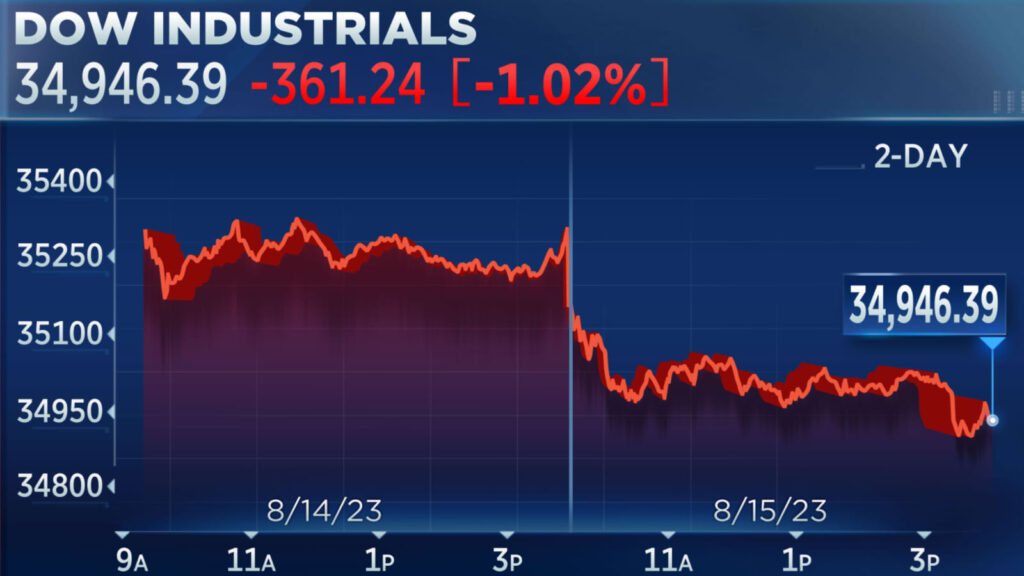In the ever-evolving landscape of finance, Dow Futures stands as a beacon of opportunity for investors worldwide. Understanding the nuances of Dow Futures is not merely a pursuit for the financially savvy but a necessity for anyone looking to navigate the complexities of the stock market. This guide aims to unravel the intricacies of Dow Futures, offering valuable insights, expert advice, and practical tips to empower investors in their journey towards financial success.
Exploring the Basics
Embarking on a journey into the realm of Dow Futures necessitates a solid grasp of its fundamental concepts. From understanding the underlying asset to grasping the mechanics of futures trading, laying a strong foundation is paramount.
Unveiling Dow Futures
Dow Futures, a derivative of the Dow’s Jones Industrial Average (DJIA), provides investors with the opportunity to speculate on the future performance of the index. Serving as a benchmark for the broader market, the DJIA comprises 30 significant stocks from various sectors, making it a vital gauge of economic health.
Mechanics of Futures Trading
Trading Dow Futures involves entering into a contractual agreement to buy or sell the DJIA at a predetermined price on a future date. This allows investors to capitalize on price movements without owning the underlying assets, offering flexibility and leverage in the market.
Benefits of Dow Futures
Delving deeper into the realm of Dow’s Futures unveils a plethora of benefits that appeal to both seasoned traders and newcomers alike. Understanding these advantages is crucial in harnessing the full potential of this financial instrument.
Risk Management
Dow’s Futures serve as invaluable tools for risk management, allowing investors to hedge against adverse market movements. By mitigating exposure to potential losses, futures contracts provide a level of security in volatile market conditions.
Liquidity and Accessibility
One of the primary attractions of Dow’s Futures is their high liquidity, ensuring seamless execution of trades at any given time. Additionally, their accessibility enables investors of all levels to participate in the market, democratizing the investment landscape.
Portfolio Diversification
Incorporating Dow’s Futures into a diversified portfolio can enhance overall risk-adjusted returns. By gaining exposure to a broad market index, investors can spread risk across various asset classes, thereby reducing portfolio volatility.
Navigating Dow Futures: Strategies for Success
Mastering the art of trading Dow’s Futures requires more than just theoretical knowledge—it demands practical strategies backed by experience and expertise. Here are some time-tested approaches to thrive in the world of futures trading.
Technical Analysis
Employing technical analysis techniques such as chart patterns, indicators, and trend analysis can provide valuable insights into market dynamics. By identifying potential entry and exit points, traders can make informed decisions based on price action.
Fundamental Analysis
Understanding the underlying factors driving market movements is essential for informed decision-making. Conducting thorough fundamental analysis, including economic indicators, corporate earnings, and geopolitical events, can help traders anticipate market trends and capitalize on opportunities.
Risk Management Strategies
Effective risk management is the cornerstone of successful futures trading. Implementing strategies such as stop-loss orders, position sizing, and portfolio diversification can help mitigate losses and protect capital in volatile market conditions.
Addressing Common Concerns
As with any investment vehicle, Dow’s Futures come with their share of questions and misconceptions. Here, we address some frequently asked questions to provide clarity and dispel any doubts.
FAQs:
- What are the trading hours for Dow Futures?
Dow Futures trade virtually 24 hours a day, five days a week, allowing investors to capitalize on global market movements. - How do dividends affect Dow Futures prices?
Unlike stocks, futures prices do not directly factor in dividends. Instead, futures prices reflect market expectations and supply-demand dynamics. - Can individual investors trade Dow Futures?
Yes, individual investors can trade Dow’s Futures through brokerage accounts, provided they meet the requirements and understand the risks involved. - What role do futures exchanges play in Dow Futures trading?
Futures exchanges such as the Chicago Mercantile Exchange (CME) facilitate the trading of Dow Futures by providing a centralized marketplace and ensuring liquidity and transparency. - How do margin requirements work in Dow’s Futures trading?
Margin requirements dictate the amount of capital required to initiate and maintain a futures position. They vary based on factors such as contract size, volatility, and regulatory guidelines. - Are there any tax implications associated with Dow Futures trading?
Tax treatment of futures trading varies by jurisdiction and individual circumstances. It’s advisable to consult with a tax professional to understand the specific implications and obligations.
Conclusion
In conclusion, Dow Futures represents a compelling avenue for investors to participate in the dynamic world of finance. By understanding the fundamentals, harnessing proven strategies, and addressing common concerns, individuals can unlock the full potential of Dow’s Future and embark on a path towards financial prosperity.
